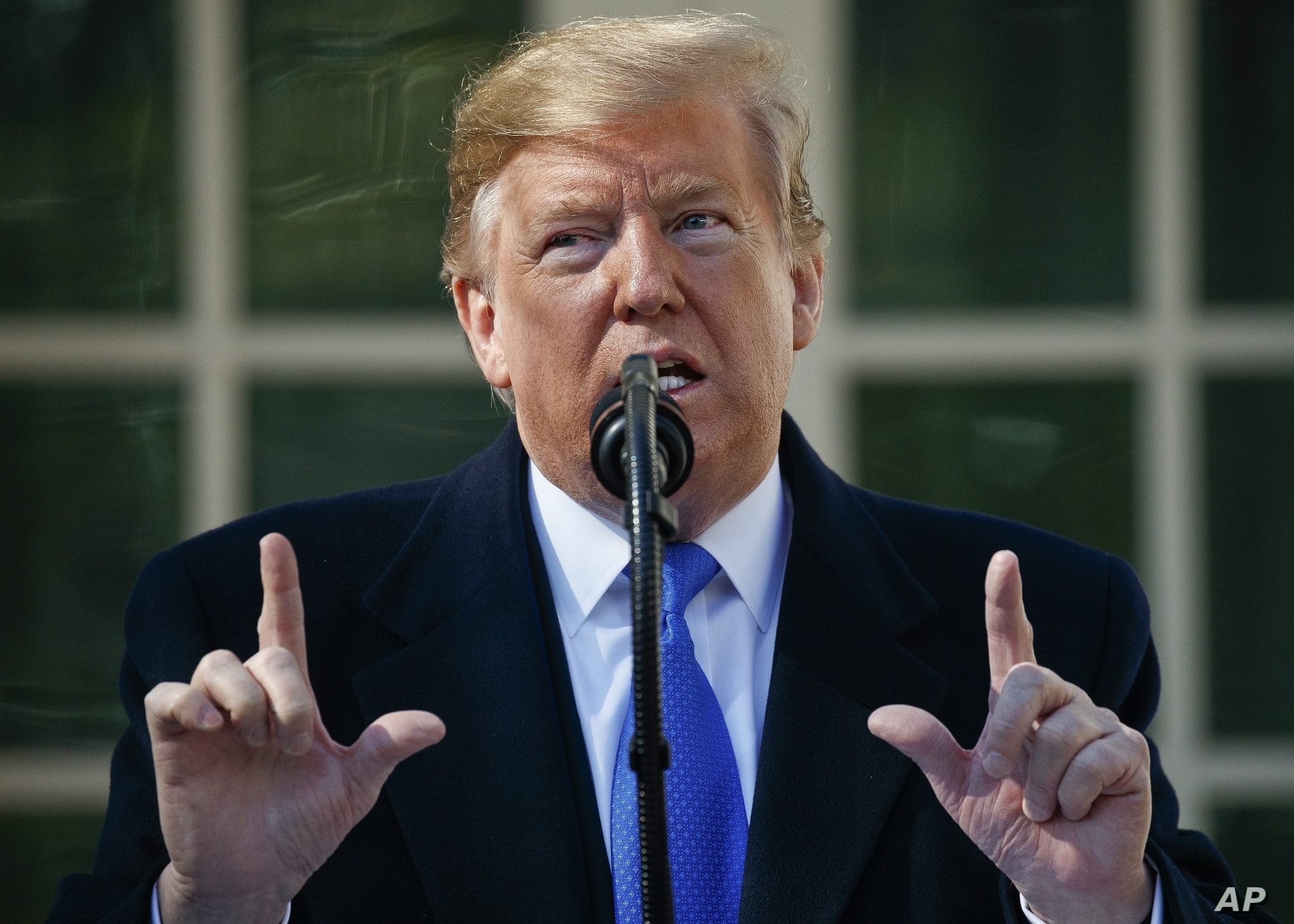Trump asserts 'right' to order US companies to leave China
President Donald Trump has declared that he has “absolute authority” to order US companies to stop doing business with China, using executive authority in a new way never before done under a 1977 law.
China announced on August 23 that it would impose a series of new tariffs on $75 billion worth of US goods, a move that escalates tensions in the trade war that is weighing on the world's two largest economies.
In response, Mr. Trump wrote on Twitter later the same day: “Our great American companies are hereby ordered to immediately start looking for an alternative to China, including bringing your companies HOME and making your products in the USA.”
As he left the White House for the G7 summit in France, Mr. Trump told reporters: “I absolutely have the right to do that, but we’ll see.”
He later clarified in a tweet that he was referring to the International Emergency Economic Powers Act (IEEPA) passed in 1977. He wrote: “For those Fake News Journalists who know nothing about the law on Presidential or Chinese powers… look up the International Emergency Economic Powers Act of 1977. End of story!”
 |
| Mr. Trump asserted that he has the right to order American companies to leave China. |
Mr. Trump's latest comments have once again raised questions about how far the President's authority can reach under IEEPA.
In May, Mr. Trump threatened to impose punitive tariffs on Mexico if it did not stop the flow of South American migrants into the U.S. According to the Congressional Research Service (CRS), the IEEPA law was never used to impose tariffs, and Mr. Trump ultimately backed out at the last minute.
According to a CRS analysis, the IEEPA law gives Mr. Trump “broad authority to regulate a wide variety of economic transactions, following a declaration of a national emergency.”
These presidential powers may be used to “confront any unusual and extraordinary threat to the national security, foreign policy, or economy of the United States.”
Under IEEPA, the President must consult with Congress before using his authority, and after declaring a national emergency, he must send a report to Congress explaining his reasons.
What Trump wants to do may actually fall within the authority Congress has given him, although it may not be the intent of Congress for giving the president the power, said Stephen Vladeck, a law professor at the University of Texas and a CNN legal analyst.
“The idea behind these types of authorities is to put the president in a better position than Congress to make these types of decisions, especially in time-sensitive situations,” Mr. Vladeck said.
“So I think the president's actions may well be within what the statute says. But I really don't think this type of action by the president is within what Congress intended when they decided to pass the law giving him that power.”
However, under the act, Congress can also rescind an emergency declaration by joint resolution.


